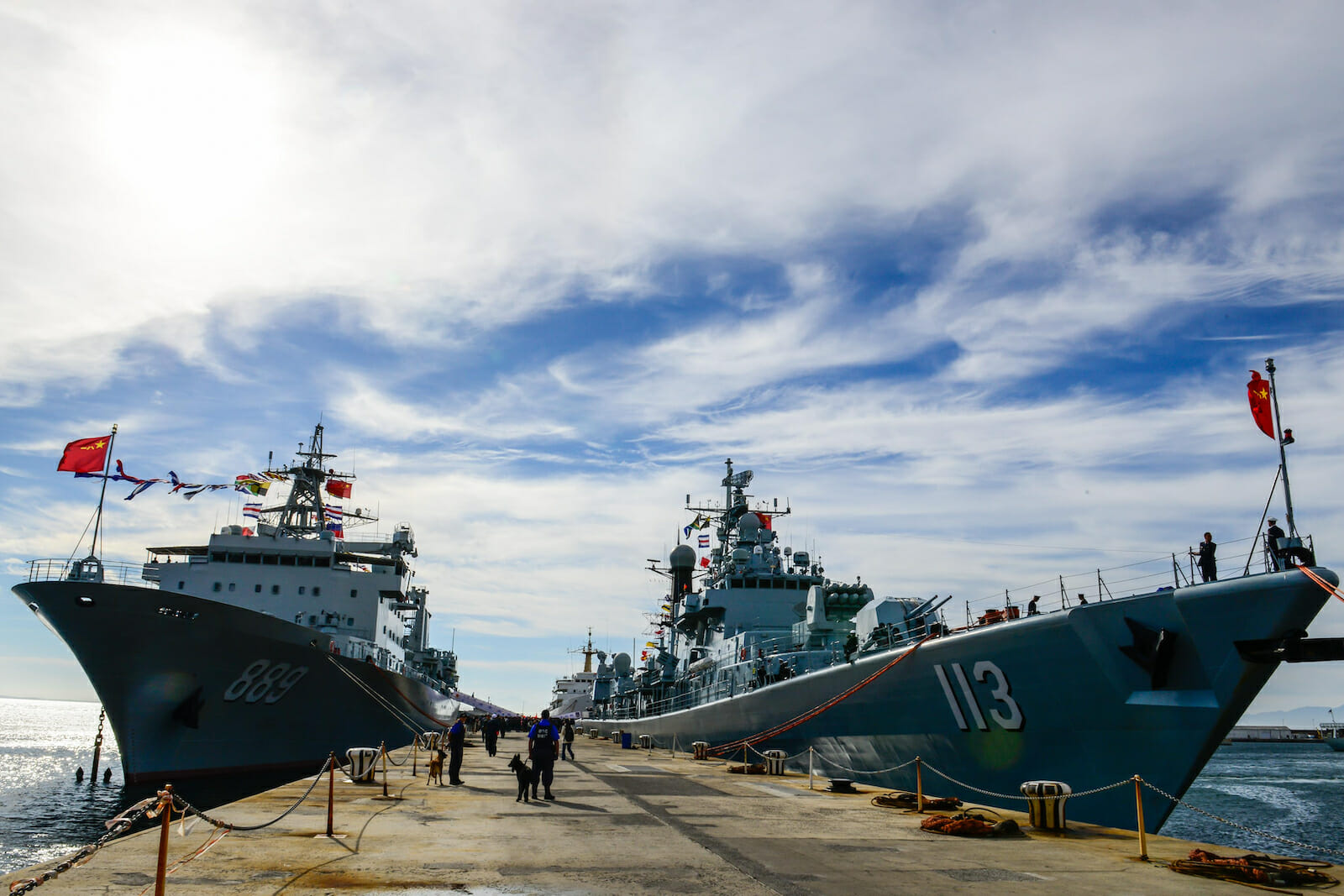
China is Flexing its Muscles in the South China Sea
As COVID-19 continues its relentless march across the world, China is taking advantage of the chaos and governments’ preoccupation with battling the virus to flex its muscles. The Chinese government has long been opportunistic, so it is using what it sees as a unique confluence of circumstances to strengthen its strategic, geopolitical, and military position in the world. This is being done in a number of ways – using soft and hard power – by delivering PPE throughout the world, increasing its foreign aid, rejiggering the Belt and Road Initiative, and by reinforcing its militarization of the South China Sea.
The Chinese government has for years argued that its ‘nine-dash line’ of sovereignty over the entire Sea is based on centuries of maritime history, and that China’s claim is airtight. The Chinese Foreign Ministry has even asserted that ample historical documents and literature demonstrates that China was “the first country to discover, name, develop and exercise continuous, effective jurisdiction over the South China Sea islands.”
The truth is somewhat different, however. As is noted in the book The South China Sea, written by veteran journalist Bill Hayton, the first Chinese official ever to set foot on one of the Spratly Islands was a Nationalist naval officer in 1946, the year after Japan’s defeat and its own loss of control of the Sea. He did so from an American ship crewed by Chinese sailors who were trained in Miami.
As for the story of the nine-dash line, it began a decade earlier through a Chinese government naming commission. China was not even the first to name the islands; the naming commission borrowed and translated wholesale from British charts and pilots. It is unclear how the Chinese government translated all this into a bill of goods it has sold to the Chinese people, but by now, it is a source of national pride, however misplaced it may be.
The Chinese government, and its people, have essentially backed themselves into a corner. They have been drinking the nine-dash line kool-aid for so long that even despite the 2016 Hague ruling that there is no legal basis for China’s claim, and even though the Chinese government has failed to produce evidence of its declaration to back their version of the facts up, national pride will not allow them to admit what the government is doing in the South China Sea is illegal under the very international maritime law (the United Nations Convention on the Law of the Seas) to which it first subscribed on the very day in 1982 when the Convention first became a legal instrument.
The Chinese government has not personified the Rule of Law in this case, or in others related to maritime borders, and wants to be able to ‘cherry-pick’ which provisions of international treaties it will willingly comply with, and which it will not. That is behavior unbecoming of a rising global power and will make states which are signatories to treaties with China wonder if its signature is worth the paper it is printed on. This cannot be in China’s long-term interest.
The Chinese government views America’s recent naval exercises in the South China Sea as illegal and merely serving to aggravate tensions between the two countries. Washington has maintained for many years that China has no legal basis upon which to continue to assert its maritime claim over the islands, shoals, or reefs of the South China Sea. The nations of Asia, and the rest of the world, agree with Washington’s position. The question is, will the world’s nations join America in publicly and consistently opposing Beijing’s continued illegal actions in the Sea?
That seems unlikely. Given Beijing’s recent propensity to practice Wolf Diplomacy by swiftly and harshly responding to any criticism of its actions, most Asian nations are likely to remain silent. Australia, Japan, and South Korea are possible exceptions to that for a military perspective, but given that they have been content to cede that role to America, not much is likely to change in the near future. Australia is already reeling from a healthy dose of Wolf Diplomacy, which has severely negatively impacted its bilateral trade with China.
Beijing has become accustomed to basically doing whatever it wants, with little consequence. Washington, the countries of Asia, and much of the rest of the world remained largely silent when Beijing expropriated and militarized the Spratly and Paracel Islands. That was a grave error. Now, most governments see little point in objecting to what is, in essence, a fait accompli. Now, short of going to war, China’s militarization of the South China Sea is a reality the world is simply going to have to live with.
This article was originally posted in Fair Observer.
